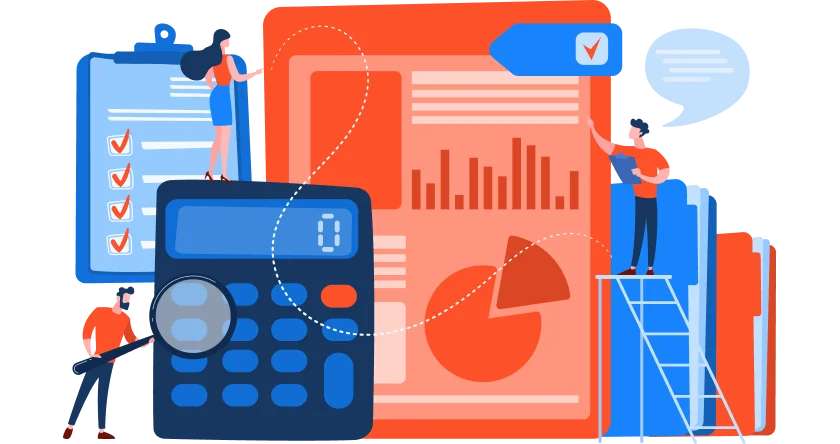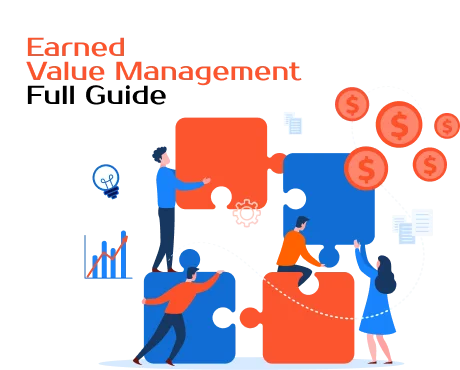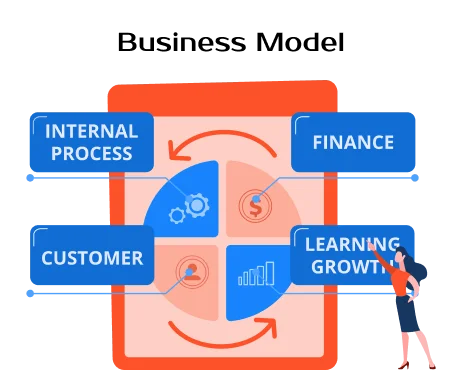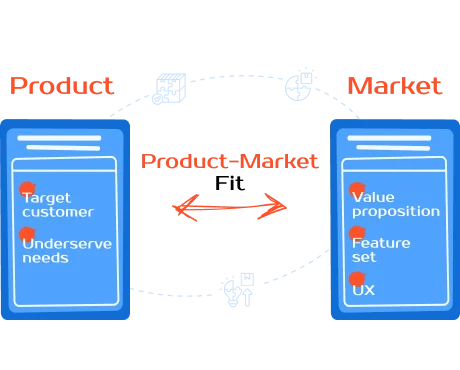Best Project Budget Management Software in 2025
Published:
July 20, 2025

Twelve-month planning cycles have vanished. Global supply-chain volatility, hybrid teams and surging AI investment mean that executives now tweak spending weekly to stay on course. Modern project budgeting software delivers the live financial visibility needed to run tight operations, spot scope-creep early and reassure investors. Research by BCG shows that 80 % of companies plan to raise tech budgets in 2025, funnelling cash into analytics and AI agents able to surface overspend risks before they snowball.
Key criteria for selecting a project budget management platform
When benchmarking project management budget tracking software, finance leaders in 2025 weigh six factors:
- Instant variance dashboards that blend labour, material and procurement data;
- Multi-scenario forecasting so “what-if” pivots take minutes, not days;
- AI recommendations that flag burn-rate anomalies;
- Native connectivity with ERP, CRM and billing tools to prevent double-entry;
- Strong multi-currency support for distributed teams;
- Elastic licensing that scales from pilot squads to global portfolios.
Each element shortens the decision loop between detecting drift and acting on it, protecting margins without throttling growth.
Best project budget management solutions
The platforms below represent the front-runners in today’s cost-conscious economy. Each one approaches budget oversight from a slightly different angle. Some embed forecasting deep inside an ERP stack, others blend timesheets with profitability analytics so the right choice depends on your operating model, reporting depth, and integration landscape.
Scoro
Scoro is an all-in-one project budgeting and work-management tool for professional-services firms. It helps teams protect margins and schedule capacity using real-time cost dashboards, billable-rate tracking, and purchase-order controls. Integrates with Xero, QuickBooks, HubSpot, Zapier, and over 1,000 apps via native API.
PlanGuru
PlanGuru is a financial forecasting and analytics suite for finance departments that need multi-year projections. It helps them model scenarios and consolidate departmental budgets using rolling forecasts, Excel add-ins, and granular assumption builders. Integrates with QuickBooks, Xero, Sage, and custom data sources through its import wizard.
Oracle NetSuite
Oracle NetSuite is an ERP-embedded project accounting platform for global enterprises. It helps organisations govern multi-currency projects using AI-assisted quotes, automated timesheets, and PSA-level cost controls. Integrates natively with the full Oracle cloud stack, Salesforce, and hundreds of marketplace add-ons.
Productive
Productive is an agency-management solution for creative, software, and consulting shops. It helps them track burn rates and profits using flexible rate cards, retainer budgeting, and capacity planning boards. Integrates with Slack, HubSpot, Stripe, Jira, and Google Workspace.
Smartsheet
Smartsheet is a collaborative work-management platform for operations leaders. It helps them translate spreadsheet-style plans into live budget trackers using resource-allocation grids, fee-based costing, and automated update requests. Integrates with Microsoft 365, Google Drive, Salesforce, Tableau, and more via connectors.
Wrike
Wrike is a project and portfolio management system for cross-functional enterprises. It helps executives roll up portfolio-level costs using currency-aware rate cards, dynamic Gantt charts, and real-time variance reports. Integrates with Salesforce, Power BI, Adobe CC, and over 400 cloud tools.
ClickUp
ClickUp is an all-purpose work hub for product and growth teams. It helps them sync tasks and dollars using custom cost fields, sprint-burn widgets, and time-tracking automations. Integrates with QuickBooks, Xero, GitHub, Slack, and thousands of apps through Zapier.
monday.com
monday.com is a low-code work-operating system for organisations of all sizes. It helps teams visualise spend versus plan using colour-coded budget boards, formula columns, and dashboard widgets. Integrates with Jira, NetSuite, Google Workspace, Microsoft Teams, and a wide Zapier library.
Comparative view of essential capabilities
Comparative view of prices and subscription type
Need help improving your business? Let’s talk
Emerging trends reshaping project and budget management software
As organizations grow more agile and data-driven, project and budget management software must evolve to meet the shifting needs of modern teams. In 2025, several transformative trends are redefining how businesses plan, track, and optimize their resources. These trends reflect not only technological advancements but also the changing mindset of teams that demand real-time insights, automation, and seamless collaboration.
1. AI and Predictive Analytics Integration
Artificial Intelligence (AI) is no longer a luxury — it's a core function. Modern budget management tools increasingly rely on predictive analytics to forecast project costs, highlight resource bottlenecks, and suggest corrective actions before problems arise. Machine learning models analyze historical data to improve accuracy in budgeting, scheduling, and risk assessment, allowing managers to make smarter, faster decisions.
2. Real-Time Collaboration Across Teams and Borders
With distributed teams becoming the norm, project management platforms are prioritizing real-time collaboration. Cloud-based tools enable multiple stakeholders to contribute to budgets, timelines, and tasks simultaneously, from anywhere. Integrations with tools like Slack, Teams, and Zoom ensure communication is embedded into workflows rather than siloed.
3. Scenario Planning and What-If Analysis
Businesses today operate in uncertain environments. Tools that offer scenario-based budgeting where teams can simulate the impact of changes in scope, costs, or deadlines are gaining traction. These "what-if" capabilities allow companies to plan flexibly and respond proactively to disruptions like supply chain issues, regulatory changes, or staffing shortages.
4. Embedded Financial Controls and Compliance Tracking
Compliance is no longer handled post-factum. Modern platforms embed financial governance directly into the software, flagging discrepancies and enforcing spending rules in real-time. This is especially important in industries like construction, healthcare, and government, where regulatory scrutiny is high.
5. Low-Code/No-Code Customization
The rise of low-code and no-code tools empowers non-developers to tailor their project and budget software to meet specific workflows. Instead of relying on rigid templates or expensive custom development, teams can build dashboards, forms, and automations that suit their unique operational needs.
6. Integration with Broader Tech Ecosystems
Today’s tools don’t work in isolation. The best platforms integrate effortlessly with ERP systems, CRMs, HR software, and business intelligence tools. These integrations ensure data consistency and reduce manual entry, while enabling holistic performance tracking across departments and project stages.
7. Sustainability and ESG Reporting Features
Environmental, Social, and Governance (ESG) factors are now key components in many project evaluations. Tools that allow project managers to track carbon footprints, labor standards, and ethical sourcing within project budgets are increasingly in demand, particularly among enterprises aiming to meet ESG compliance or investor expectations.
8. Mobile-First Experiences
Project and budget managers are often on the go. As a result, mobile-first designs with full functionality from expense approval to real-time reporting are becoming essential. Offline modes and native mobile apps are no longer optional but expected.
9. Data Visualization and Storytelling Dashboards
Reporting is moving beyond static charts. New-generation tools feature interactive dashboards that combine financial data with project timelines and performance metrics, using visual storytelling to communicate insights to stakeholders who may not be financially or technically fluent.
10. Decentralized and Blockchain-Based Ledger Systems
For organizations managing complex global projects with multiple currencies, vendors, and jurisdictions, blockchain integration offers transparent, immutable records of every transaction. While still emerging, decentralized finance principles are being tested in large-scale construction, energy, and logistics projects.
Which solution fits which business?
Start-ups and lean product teams that prize speed over exhaustive modelling usually gravitate to ClickUp or monday.com, gaining unified task and cost oversight in days without heavy admin.
Professional-services firms juggling multiple billing styles benefit from Productive or Scoro, where rate cards, retainers and real-time burn indicators guard against scope drift.
Mid-market manufacturers aiming for long-range what-if planning lean on PlanGuru’s deep forecasting.
Multinational enterprises with complex compliance rules typically select Oracle NetSuite for its embedded PSA, AI quote generation and global support.
Conclusion
Choosing the best project budget management software is less about headline features and more about alignment with process maturity, reporting depth and growth trajectory. A disciplined pilot — importing live data, running parallel forecasts and pressure-testing integrations reveals hidden gaps before contracts are signed.
Teams that invest time in thorough evaluation consistently report tighter financial governance, quicker corrective action and greater confidence when green-lighting strategic initiatives. The result is a culture where every project, regardless of size, delivers on both scope and spending targets, positioning the organisation for resilient, data-driven growth in 2025 and beyond.





